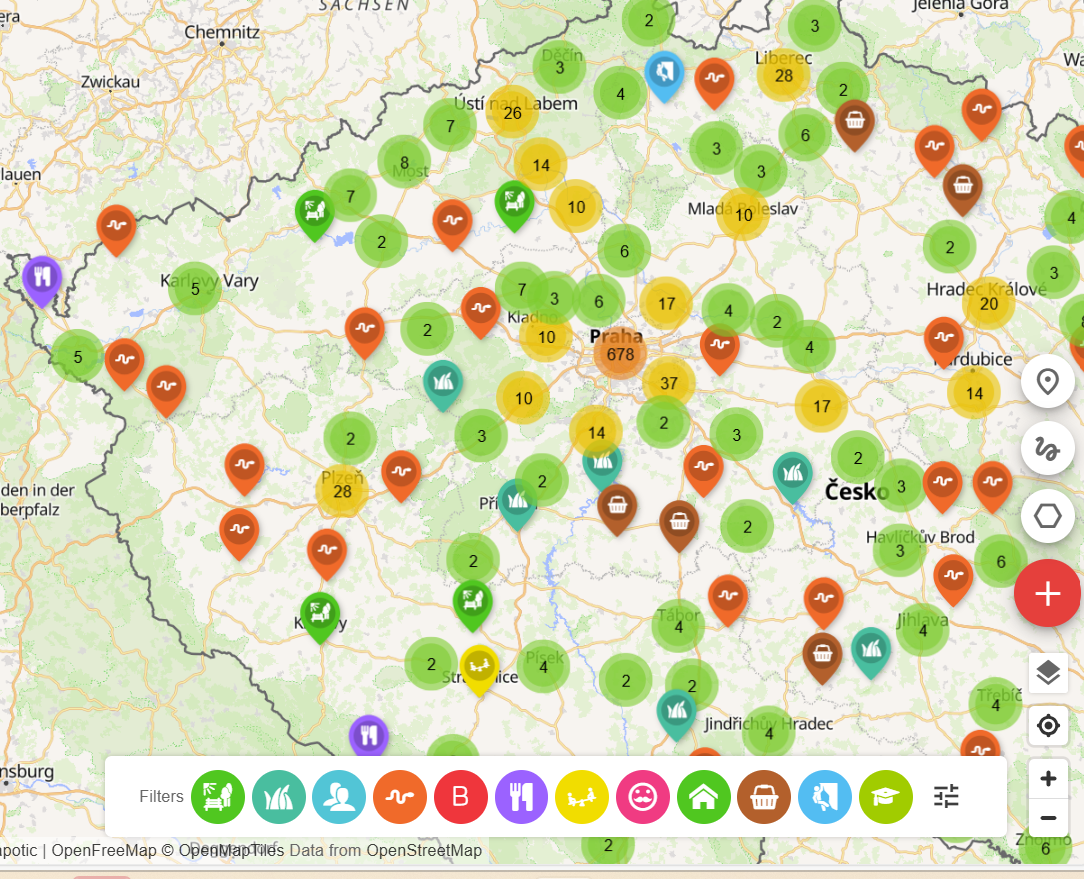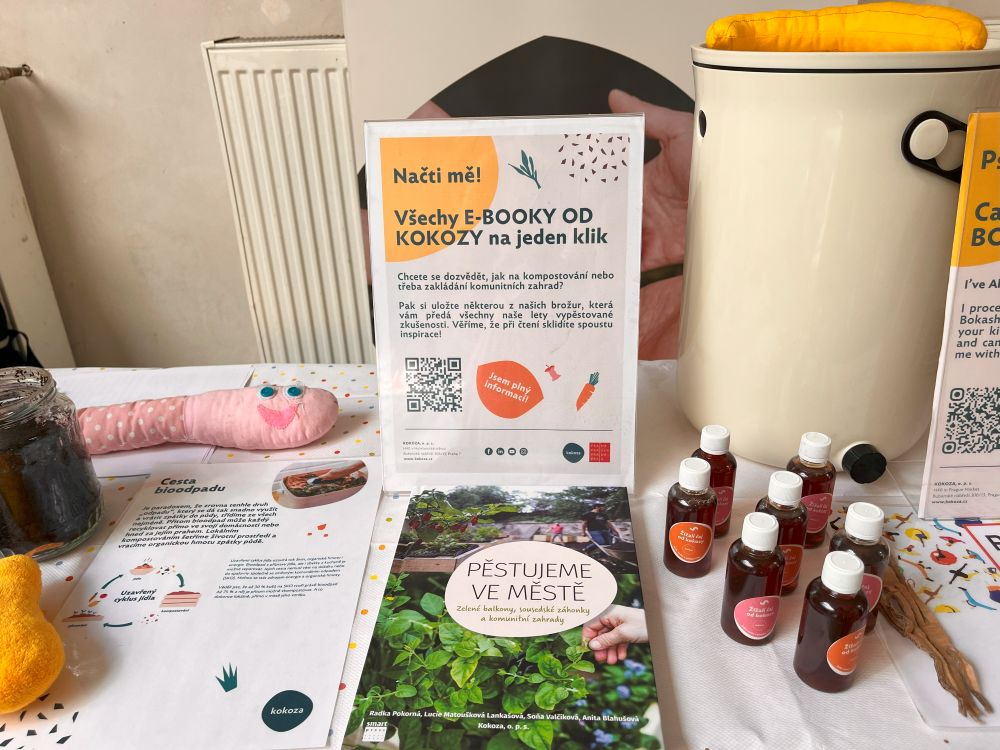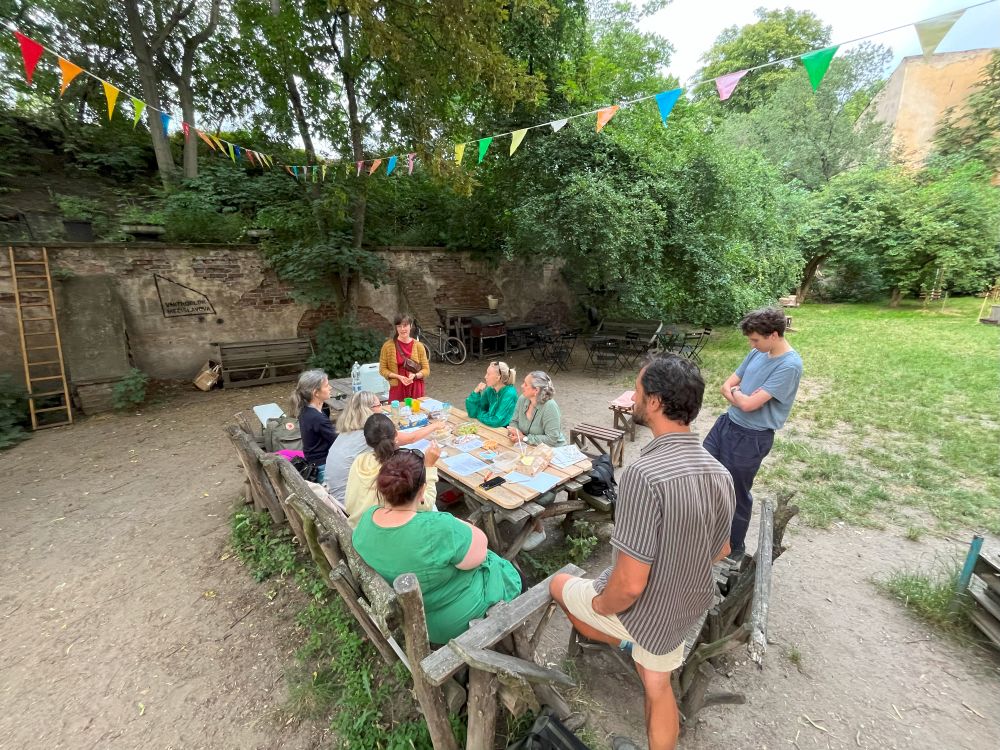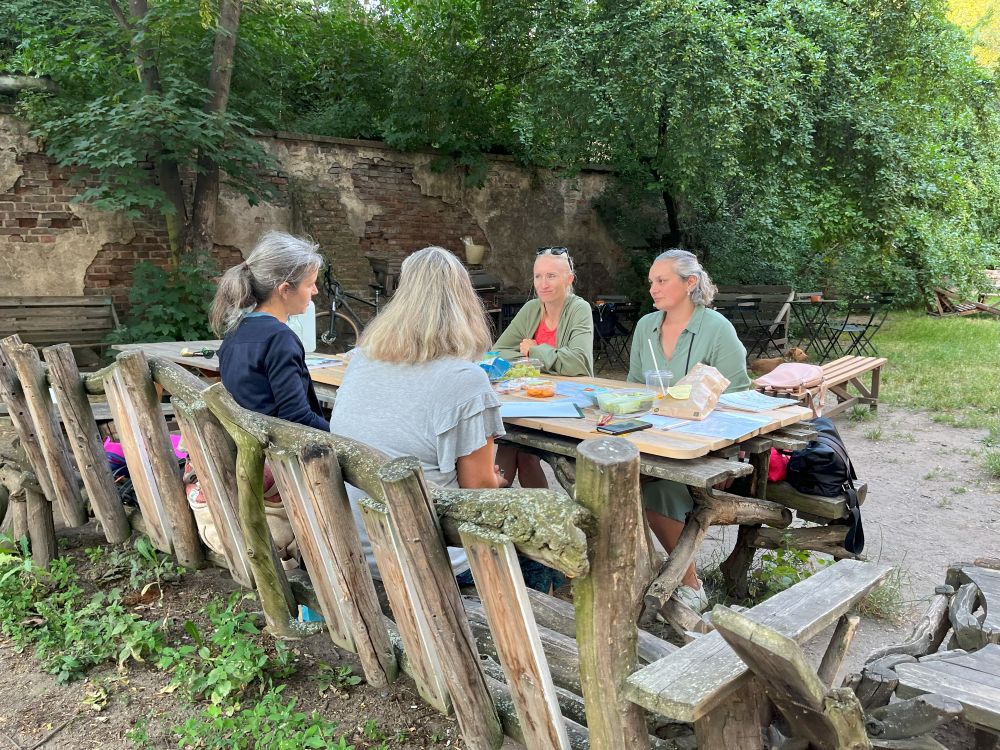Mapko Connects Community Gardens
Mapko Connects Community Gardens is a project led by Kokoza, in response to ACCTING’s call for pilots Garden BnB – An exchange platform between actors involved with community gardens or agrifood systems. This call aims to improve visibility, access, connections and practices in the field of sustainable and inclusive urban agriculture, involving vulnerable groups while creating and developing a shared repository of knowledge.
Kokoza supports urban residents in the Czech Republic in composting and cultivation, with the aim to enhance the harmony between humans and nature. The organisation fosters partnerships with public institutions and companies, aiding them in sustainability, corporate culture development, community gardens, and organic waste management.

Objective
The core of the project was the revitalisation of the Mapko platform, which serves as a centralised hub for community gardens and composting sites, to encourage the creation of new gardens in the Czech Republic. Through the development of Mapko.cz into an interactive platform, fostering a collaborative network, enhancing visibility, and promoting inclusivity, the initiative aimed to contribute to the creation of a sustainable and inclusive urban agriculture community that benefits all stakeholders, including vulnerable groups.

Activities
- Update and expansion of the Mapko map, registering missing actors and information and adding new locations
- Organisation of “Rhizomes” meetings, connecting key actors such as coordinators of community gardens, garderners and composting experts
- Publication of information and guidance online on the topics of composting, gardening, the establishment of community gardens, and the management of organic waste
- Participatory evaluation over a one-day seminar, to assess the project’s impact in an inclusive way
The “Mapko” pilot project highlights the role of community gardens as commons spaces that bridge social and economic inequalities in the Czech Republic. Targeted groups included migrants, refugees, low-income households, national minorities, single mothers, elderly people, persons with disabilities, LGBTQI+ individuals, members of the Roma community, individuals with mental health challenges, those with penitentiary system experiences, unemployed persons, and rural inhabitants. Community gardens were viewed as inclusive spaces with the potential to address social, economic, and environmental inequalities while fostering resilience within vulnerable populations.
Central to the project was the revamping and improvement of a networking platform, Mapko.cz, based on extensive community and user feedback. This related not only to the usability and GDPR-compliance of the website, but also updating the mapping of community gardens across the Czech Republic. Here, the platform registered 59 new community gardens (making the current total count of 184) while documenting the closure of 12 others. Including corporate gardens marked a growing interest in using green spaces to promote employee well-being and sustainability. At these and other events (such as gardening workshops) social cohesion was further strengthened by providing childcare support and addressing linguistic barriers, enabling broader participation and promoting female leadership.
These changes were based on multiple rounds of community and stakeholder feedback, with two public engagement events (Rhizome Meetings), resulting in updates to 30% of the website to improve navigability and useability. The platform attracted over 6,500 users in 2024, and offered features like a knowledge bank and user recognition badges to enhance collaboration.
The KOKOZA organisation has a broader aim of supporting the establishment and growth of community gardens within and beyond the Czech Republic. Over the course of the Makpo team handled 1,284 requests for training, providing support on topics such as composting, general garden operations, and leadership capacity-building.
Particularly towards the latter part of the project, such outreach work focused on extending beyond Prague and particularly into more rural areas. The use of a multilingual social media campaign helped to reach over 30 NGOs and five municipalities outside Prague, broadening engagement with urban and rural stakeholders, including attempts to adapt the community gardens concept to different contexts. A notable partnership milestone was a memorandum of understanding signed between Kokoza and a property development company, leveraging Kokoza’s expertise to establish community gardens and green spaces in new residential projects.


Community meeting, (c) Kokoza

The key project output was the comprehensively revamped Mapko.cz community garden map.
Mapko has significantly enhanced the visibility, connectivity, and resilience of community gardens in the Czech Republic.
The Mapko model has strong potential for replication beyond the Czech Republic, with adaptation to different regional contexts. Strengthening municipal and policy engagement could help secure long-term funding and legal protections for community gardens, especially in areas where land use is contested. Alternative funding models, such as cooperative ownership or grant-based support, could help reduce dependence on membership fees, making community gardening more accessible.
